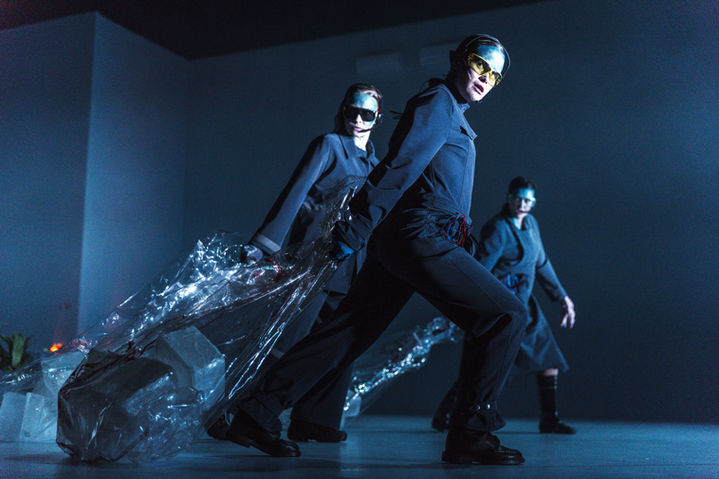BARTO
THEATRE DIRECTOR
MACBETH
Based on William Shakespeare
2023 January 13th
PRODUCED BY:
The Reykjavik City theatre
DIRECTOR
Uršulė Barto
COMPOSER
Hrafnkell Flóki Kaktus Einarsson
SET DESIGNER
Milla Clarke
COSTUME DESIGNER
Liucija Kvašytė
VIDEO AND LIGHT DESIGNER
Pálmi Jónsson
TRANSLATED BY:
Kristján Þórður Hrafnsson
DRAMATURGE
Andrea Vilhjálmsdóttir
MASK AND MAKE UP
Elín S. Gísladóttir
SOUND DESIGNER
Þorbjörn Steingrímsson
ACTORS
Árni Þór Lárusson
Ásthildur Úa Sigurðardóttir
Bergur Þór Ingólfsson
Björn Stefánsson
Esther Talía Casey
Haraldur Ari Stefánsson
Hjörtur Jóhann Jónsson
Rakel Ýr Stefánsdóttir
Sigurður Þór Óskarsson
Sólveig Guðmundsdóttir
Sólveig Arnarsdóttir
Þórunn Arna Kristjánsdóttir
Sölvi Dýrfjörð
Nominations for Gríman - the Icelandic performing arts award:
Supporting actress - Ásthildur Úa Sigurðardóttir
Set design - Milla Clarke
Costumes - Liucija Kvašytė
Light design - Pálmi Jónsson
Sound design - Þorbjörn Steingrímsson and Hrafnkell Flóki Kaktus Einarsson

Reviews (in Icelandic):
A buffet of exciting dishes that don't go together
"One of the show's strongest images is the world of the Three Fates, whose office has Soviet allusions with an overabundance of bureaucracy. The witches have an obnoxious speaker that cuts to the bone, and the actresses portray these soulless roles extremely well. They seem to control the world like puppet masters, where the other characters are their puppets, they read to form play descriptions directly from the script that bears the Borgartheater's logo. However, they also mention their leaders, which raises the question of who is really in charge of this world?"
Nína Hjálmarsdóttir for RUV.IS
Macbeth in the East Road
"<...> This has laid the foundation for Macbeth's villains, as well as Uršulė Barto's interpretation, which directly connects the change of power in Shakespeare's work to the change of power in Russia before the turn of the last century. It's going to be quite steep, but the passage of time is almost completely tied to the surroundings - the text is allowed to hold its own, albeit shortened, but it is certainly turned out of it in various ways with emphasis, sexualization and interpretation."
Silja Aðalsteinsdóttir for Tímarit










